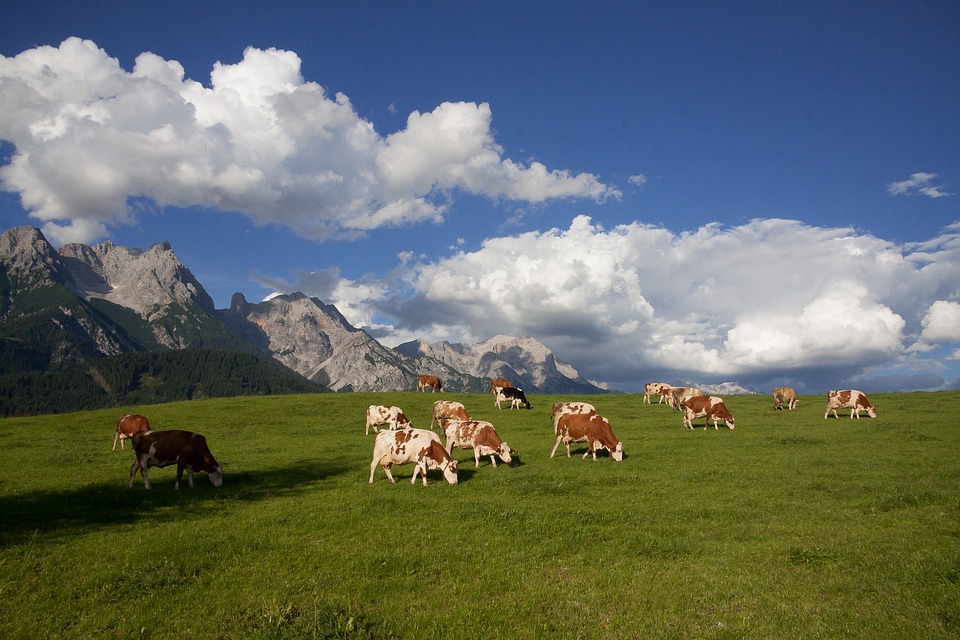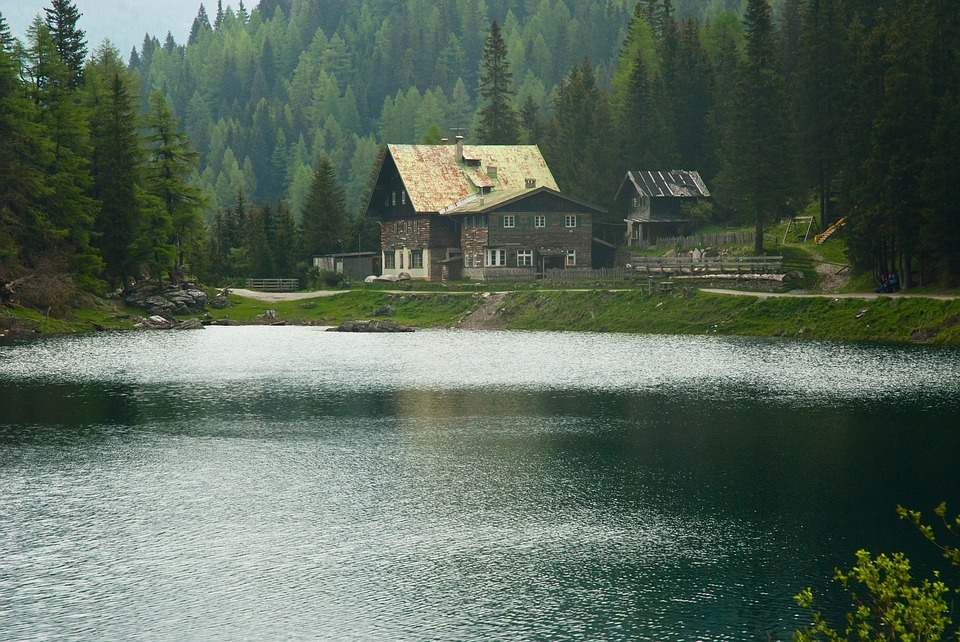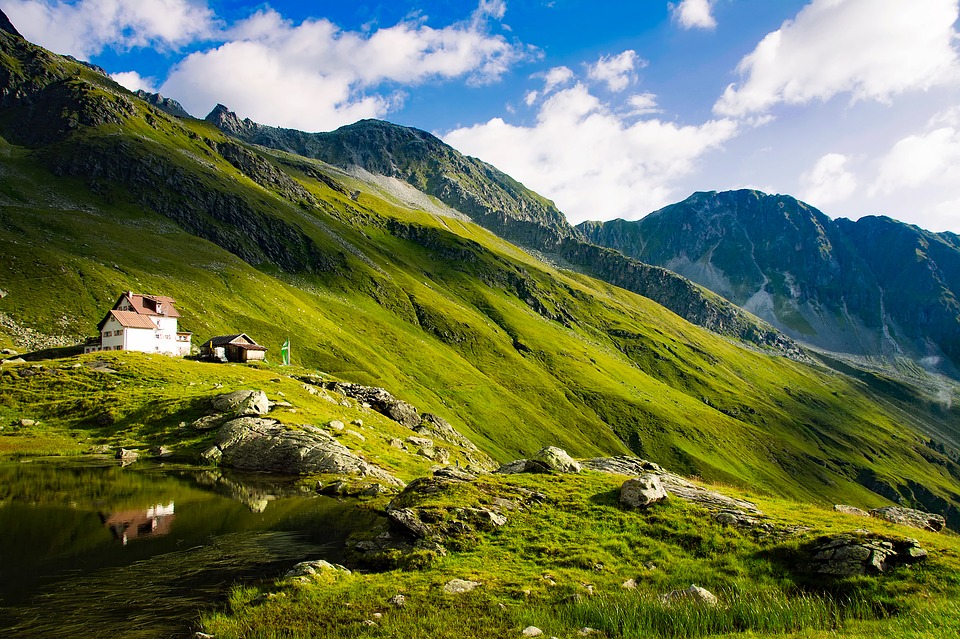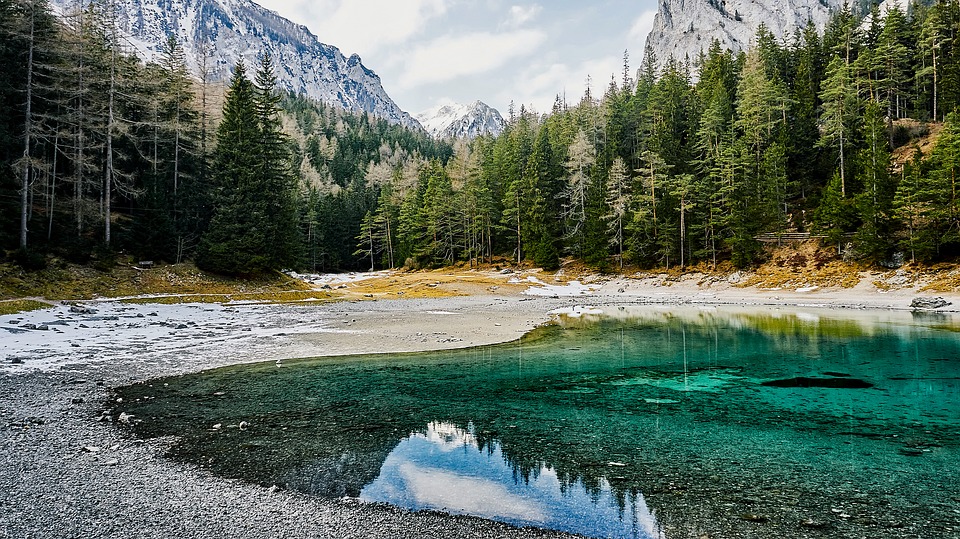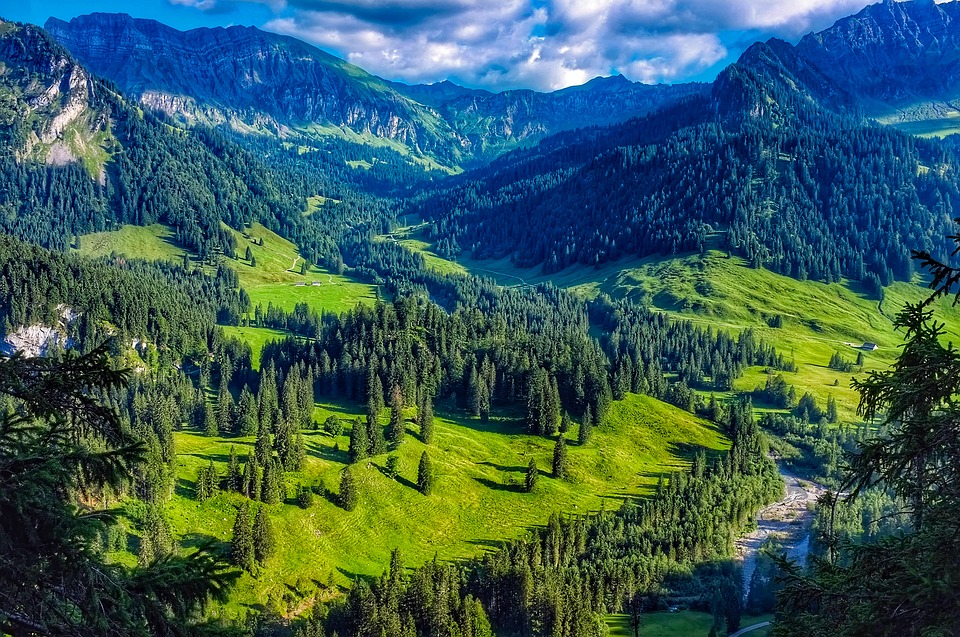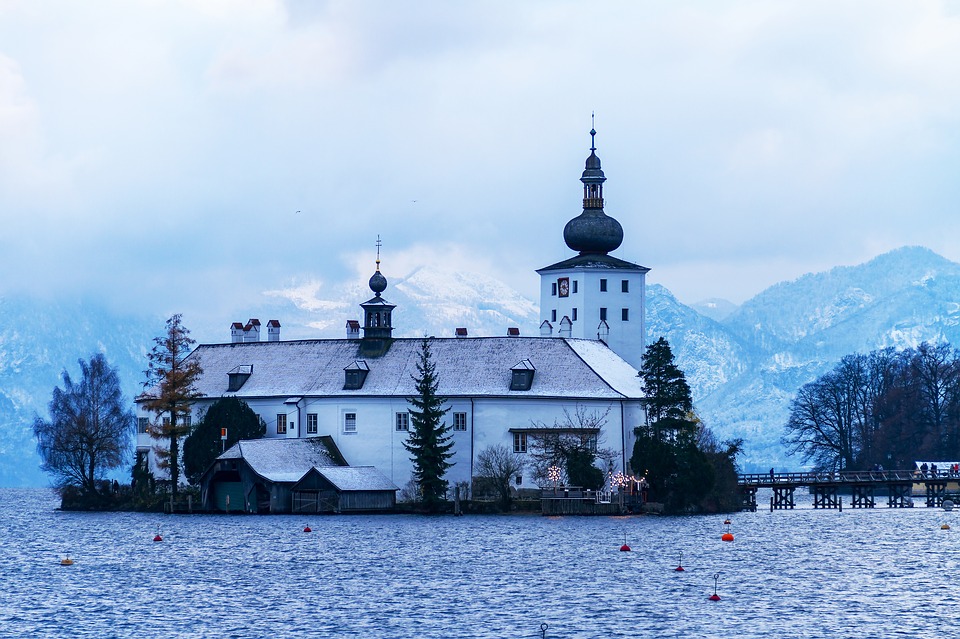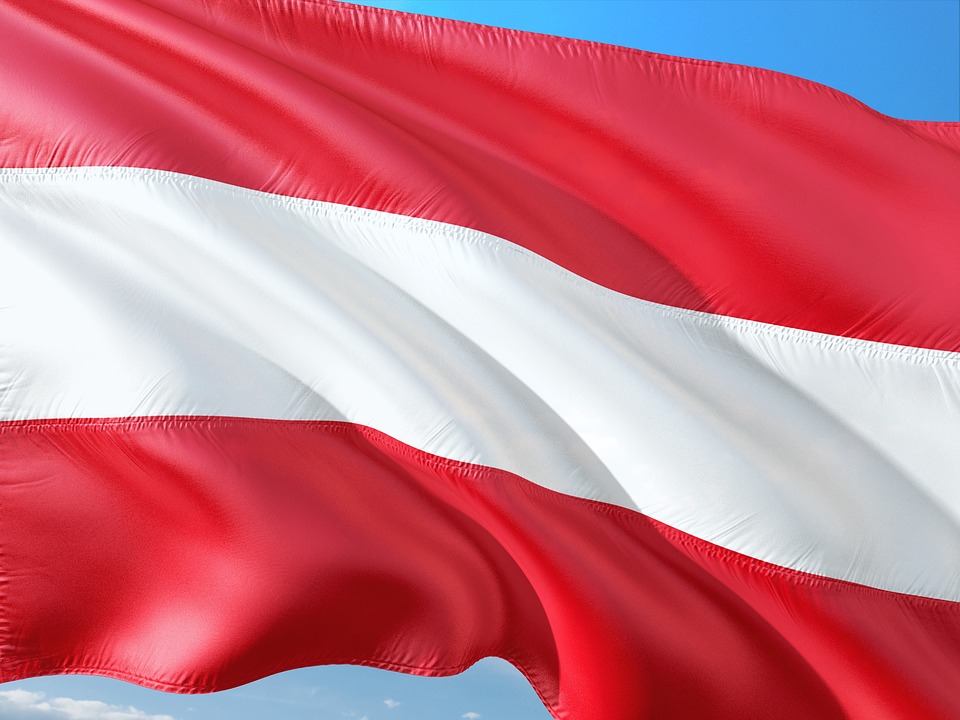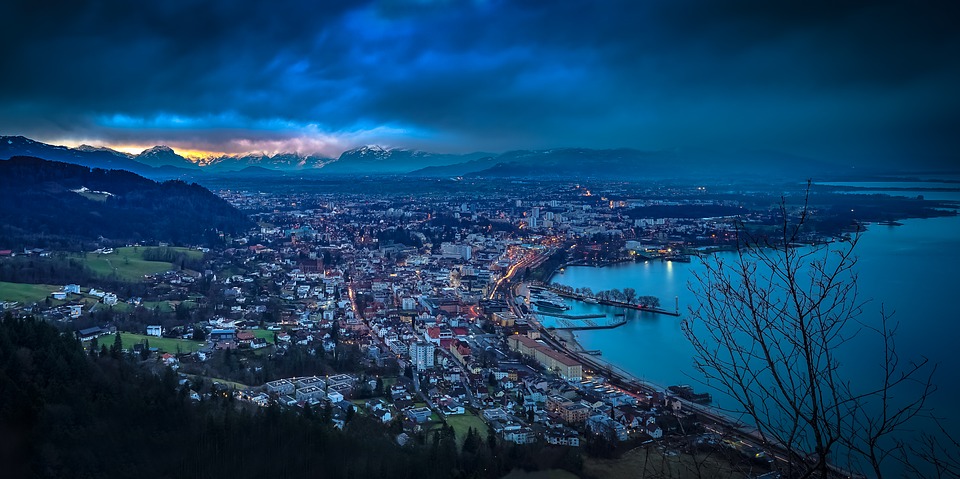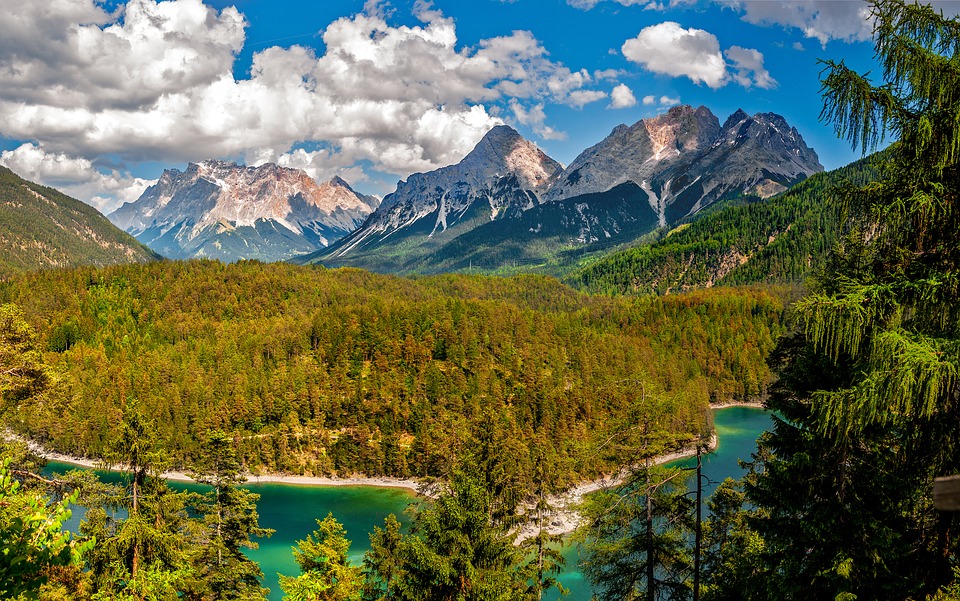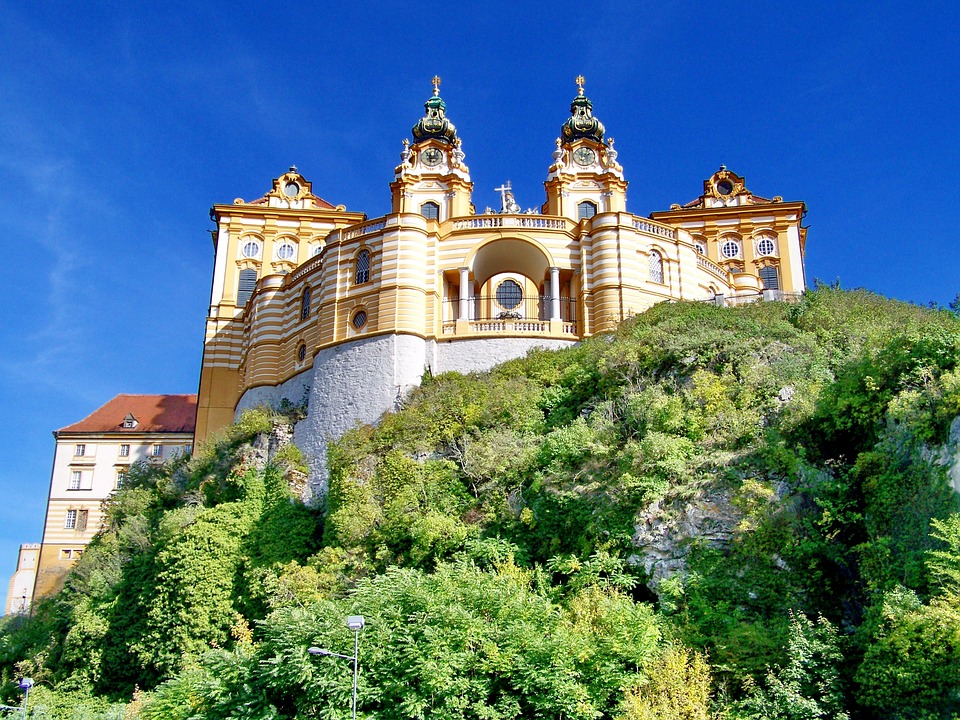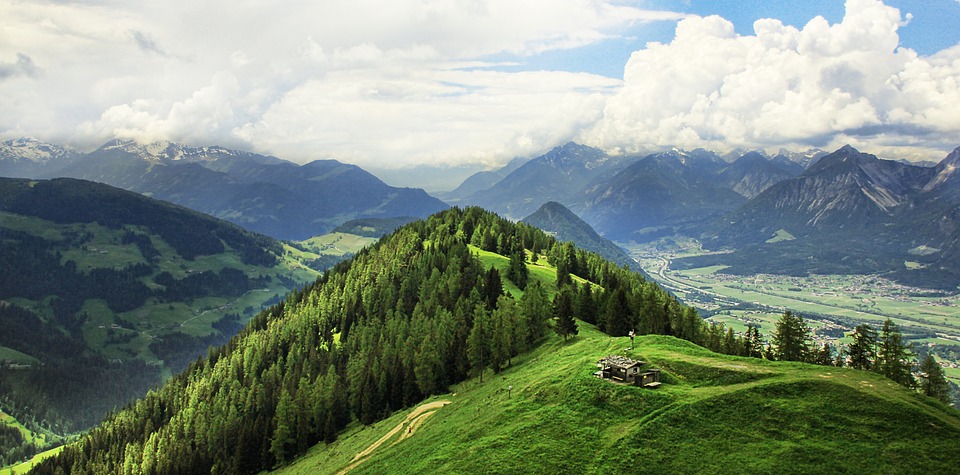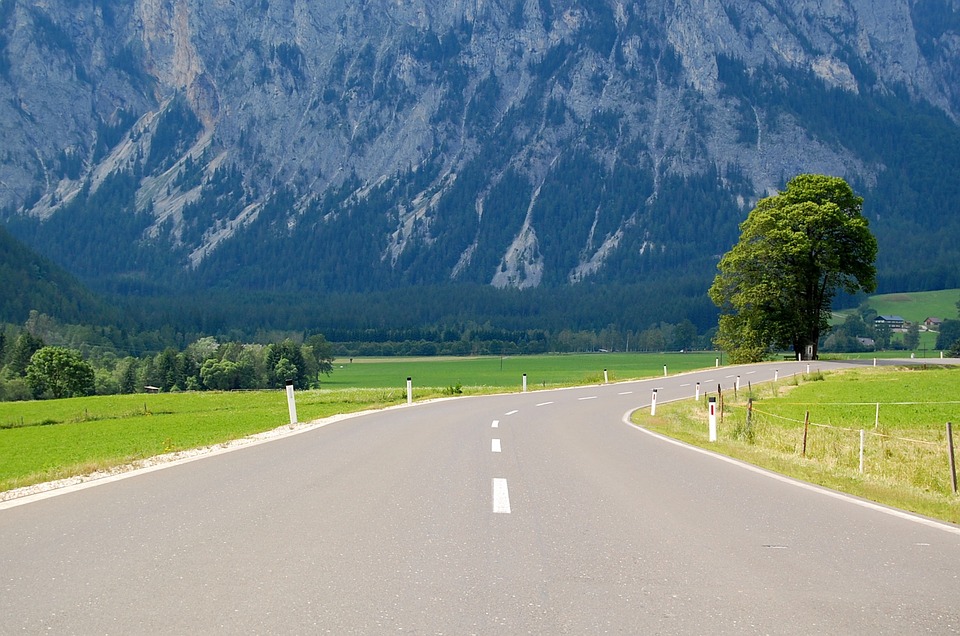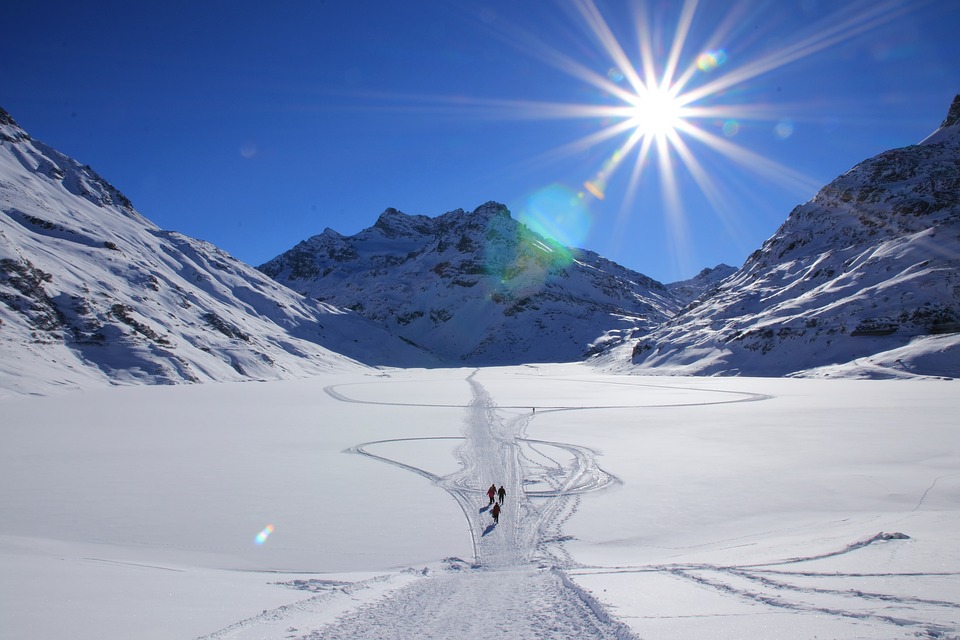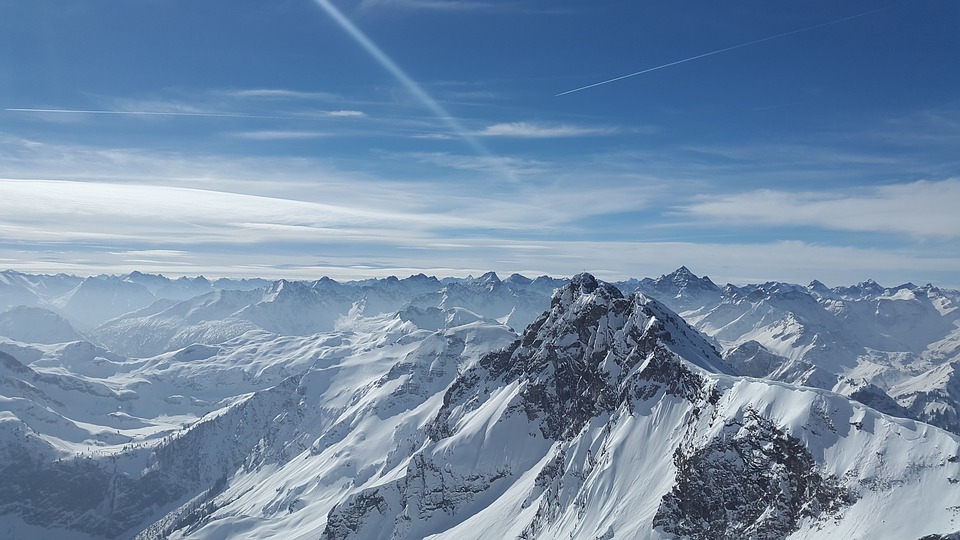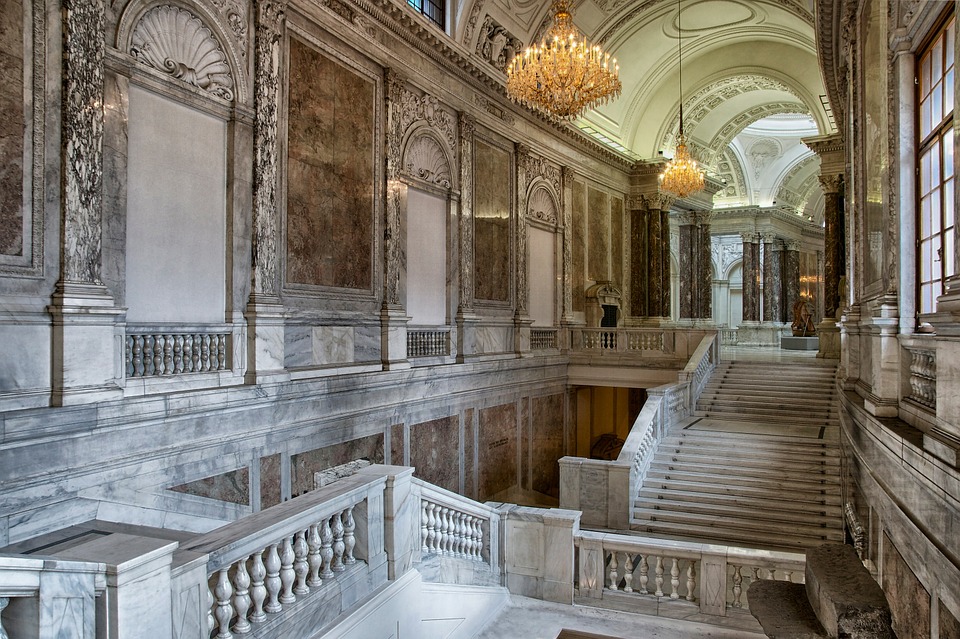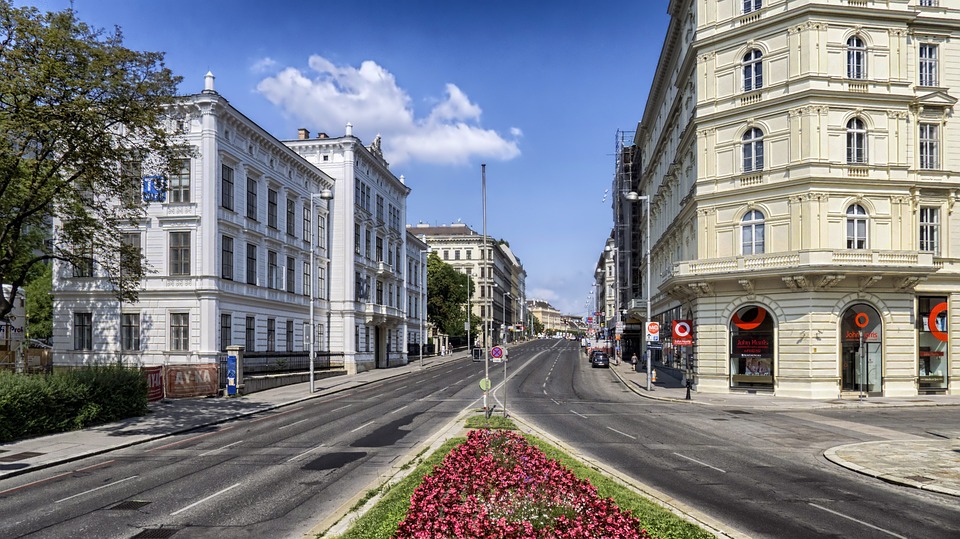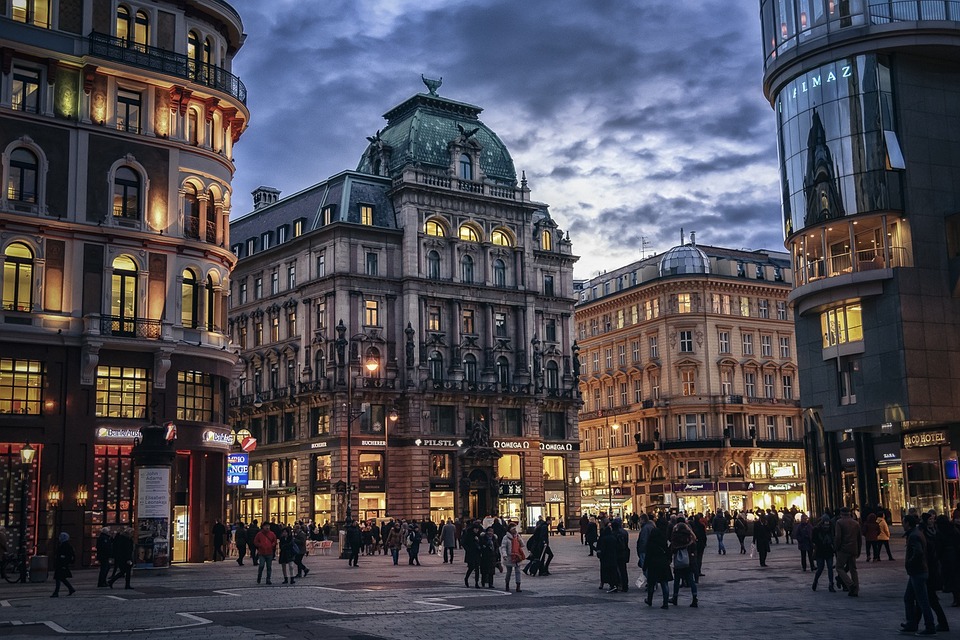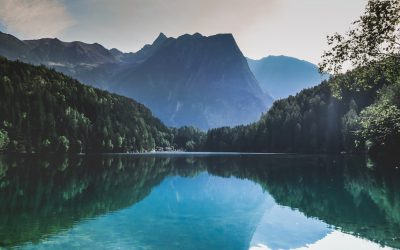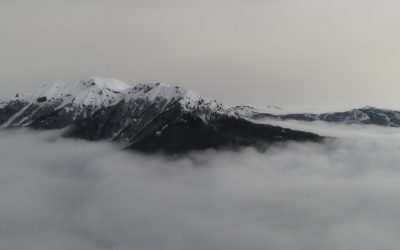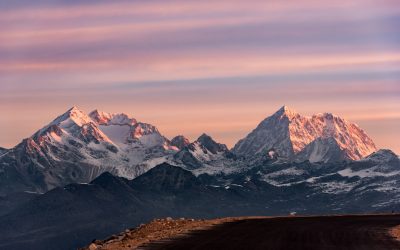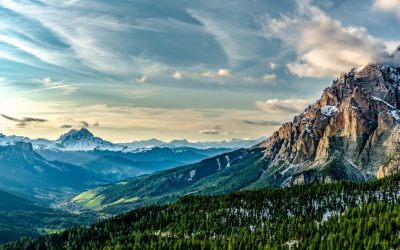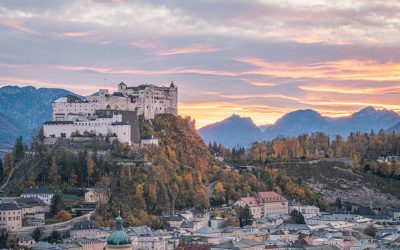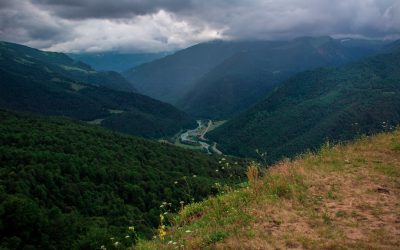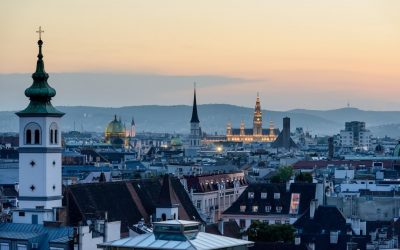Austria
(Republik Österreich (Republic of Austria))

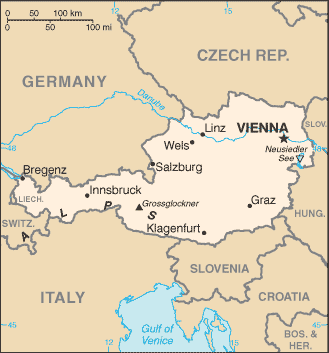
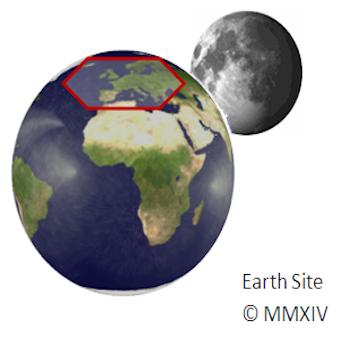
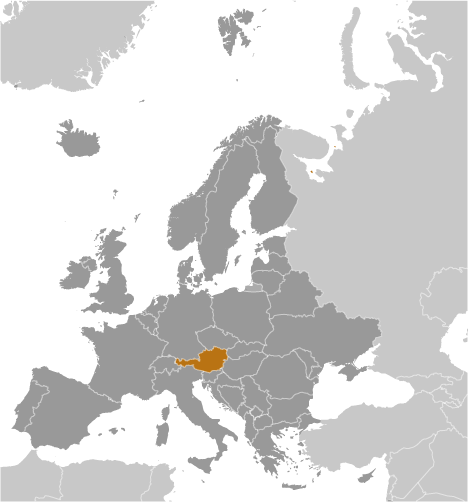
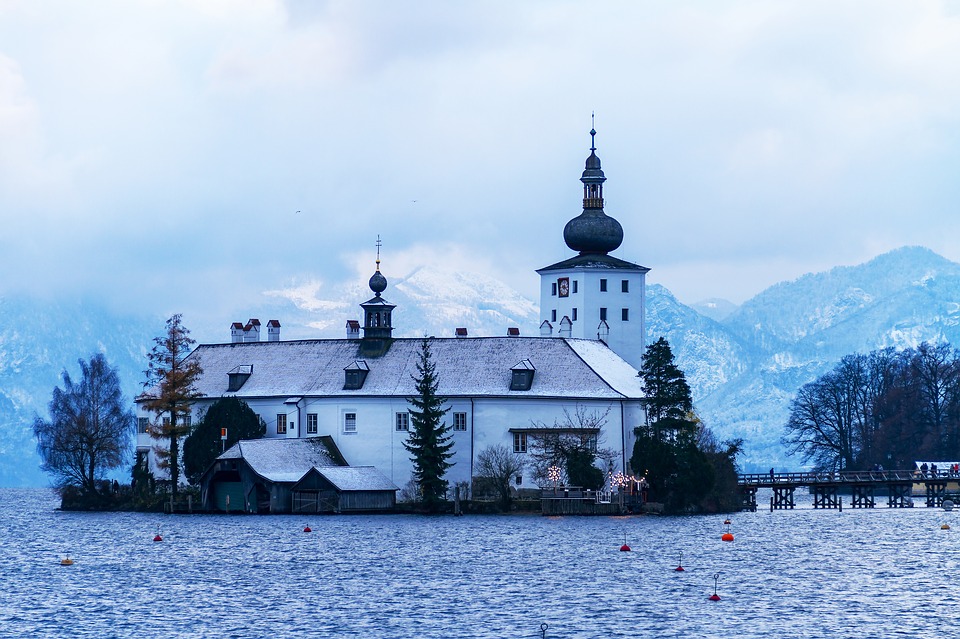

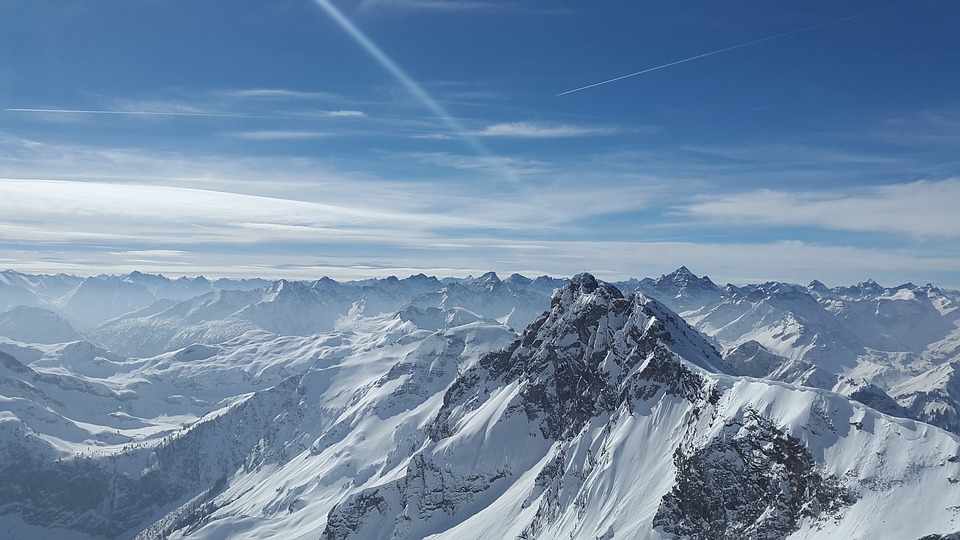
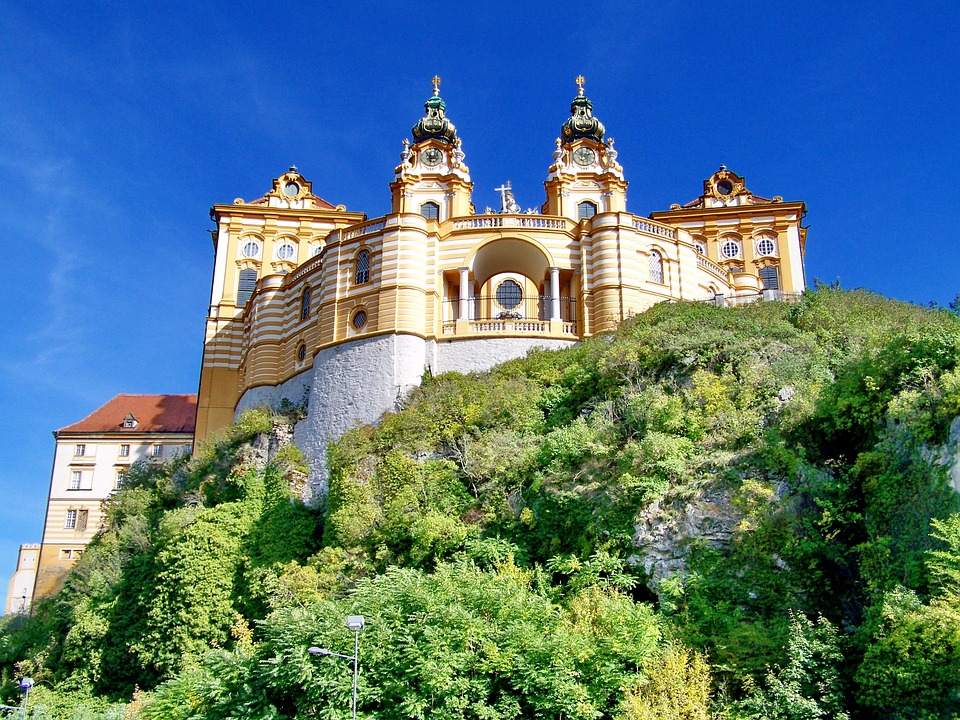
Capital of Austria : Vienna
Population (Estimated July 2012): 8,219,743
Area: 83,879km2 or 32,386mi2
Currency: Euro (€)
Official Language: German
Political Information: Federal State
Official Religion: No Official Religion (approximately 73.6% of the population is Roman Catholic, 4.7% are Protestant, 4.2% are Muslim, 5.5% have other or unspecified religious beliefs and 12% have no religious beliefs)
Highest Mountain: Grossglockner at 3,798m or 12,460ft
GDP Official Exchange Rate (OER is more precise at gauging a countries economic power)
(Estimated 2011): $425.1 billion (US$) or £255.06 billion(GBP)
GDP (OER) Per Capita (per member of the population estimated 2011): (US$) or (GBP)
GDP Purchasing Power Parity (PPP is good for gauging living conditions and use of resources but not as accurate as OER. This data has been calculated based on the sum value of all goods and services produced in the country valued at prices prevailing in the United States)
(Estimated 2011): $351.4 billion (US$) or £210.84 billion(GBP)
GDP (PPP) Per Capita (per member of the population estimated 2011): $41,700 (US$) or £25,020 (GBP)
Time Zone (GMT/UTC): +1:00
Counties/Provinces/States: Burgenland, Karnten (Carinthia), Niederosterreich (Lower Austria), Oberosterreich (Upper Austria), Salzburg, Steiermark (Styria), Tirol (Tyrol), Vorarlberg, Wien (Vienna)
Leaders: Alexander VAN DER BELLEN (since 26 January 2017); Chancellor Sebastian KURZ (since 18 December 2017); Vice Chancellor Heinz-Christian STRACHE (since 18 December 2017).
Sources: CIA World Fact Book, Encyclopaedia Britannica,
Austria, located in Central Europe, is a country known for its rich culture and stunning natural beauty. It is bordered by Germany, the Czech Republic, Slovakia, Hungary, Slovenia, Italy, Switzerland, and Liechtenstein. The country is famous for its historical cities, picturesque landscapes, and vibrant arts scene. From the grandeur of Vienna to the breathtaking beauty of the Alps, Austria offers a diverse range of experiences for visitors.
Austria is a land of culture and history. It has been home to many great composers, artists, and writers who have left an indelible mark on the world. The country is also known for its love of music, with classical music being an integral part of its cultural heritage. Austria is also famous for its architecture, with stunning examples of Baroque and Gothic styles found throughout the country. In addition to its cultural attractions, Austria is blessed with natural beauty. The country is home to the majestic Alps, crystal-clear lakes, and picturesque rivers. Whether you are a nature lover or a history buff, Austria has something to offer everyone.
History of Austria: From the Habsburg Empire to Modern-Day
The history of Austria is rich and complex, with influences from various empires and kingdoms throughout the centuries. One of the most significant periods in Austrian history was the reign of the Habsburg Empire. The Habsburgs ruled over Austria for more than six centuries and their influence can still be seen today. Under their rule, Austria became a major European power and Vienna became a center of culture and politics.
The Habsburg Empire was known for its tolerance towards different cultures and religions. This led to a flourishing of arts and sciences in Austria during this period. Many famous composers such as Mozart, Haydn, and Beethoven were active during this time and their works continue to be celebrated today.
In the 20th century, Austria went through a tumultuous period with the rise of Nazi Germany and World War
After the war, Austria was occupied by the Allied forces and eventually regained its independence. Today, Austria is a democratic country and a member of the European Union.
Geography of Austria: The Alps, Lakes and Rivers
Austria is known for its diverse and stunning landscape. The country is dominated by the majestic Alps, which cover about 60% of its territory. The Austrian Alps offer breathtaking views, with snow-capped peaks, lush green valleys, and crystal-clear lakes. The highest peak in Austria is Grossglockner, standing at 3,798 meters.
Apart from the Alps, Austria is also home to numerous lakes and rivers. The Danube River, one of Europe’s major waterways, flows through Austria and offers scenic cruises and recreational activities. The country is also known for its beautiful lakes, such as Lake Wolfgang and Lake Neusiedl, which are popular destinations for swimming, boating, and fishing.
The diverse geography of Austria provides ample opportunities for outdoor activities such as hiking, skiing, and mountain biking. Whether you are an adrenaline junkie or a nature lover, Austria has something to offer everyone.
Austrian Culture: Music, Art and Literature
Austria has a rich cultural heritage that spans centuries. The country has produced some of the world’s greatest composers, artists, and writers. Classical music has always been an integral part of Austrian culture, with famous composers such as Mozart, Haydn, and Strauss hailing from the country. Vienna, the capital city of Austria, is often referred to as the “City of Music” due to its rich musical history.
In addition to music, Austria has also made significant contributions to the world of art and literature. The country has produced renowned artists such as Gustav Klimt and Egon Schiele, who were part of the Vienna Secession movement. Austrian literature is also highly regarded, with writers such as Arthur Schnitzler and Stefan Zweig gaining international recognition.
Austria’s cultural heritage is celebrated through various festivals and events throughout the year. The Vienna Opera Ball, held annually in Vienna, is one of the most prestigious events in the country and attracts visitors from around the world. The Salzburg Festival, held in Salzburg, is another major cultural event that showcases the best of Austrian music and theatre.
Famous Austrian Personalities: Mozart, Freud and Schwarzenegger
Austria has produced many famous personalities who have made significant contributions to their respective fields. One of the most well-known Austrians is Wolfgang Amadeus Mozart, one of the greatest composers in history. Mozart’s music continues to be celebrated worldwide and his works are performed in concert halls and opera houses around the globe.
Sigmund Freud, the father of psychoanalysis, was also born in Austria. His theories and ideas have had a profound impact on psychology and continue to be studied and debated to this day. Arnold Schwarzenegger, the famous actor and former Governor of California, was also born in Austria. Schwarzenegger’s success in bodybuilding and Hollywood has made him a global icon.
These famous Austrians have not only achieved great success in their respective fields but have also had a significant impact on Austrian culture and society. They serve as a testament to the talent and creativity that can be found in Austria.
Austrian Cuisine: Schnitzel, Strudel and Wine
Austrian cuisine is known for its hearty and flavorful dishes. One of the most famous dishes is Wiener Schnitzel, a breaded and fried veal cutlet that is typically served with potatoes or salad. Another popular dish is Tafelspitz, which is boiled beef served with horseradish and apple sauce. Austrian cuisine also includes a variety of sausages, such as Bratwurst and Frankfurter.
When it comes to desserts, Austria is famous for its apple strudel and Sachertorte. Apple strudel is a sweet pastry filled with apples, raisins, and cinnamon, while Sachertorte is a rich chocolate cake with a layer of apricot jam. These desserts are often enjoyed with a cup of coffee, as Austria has a strong coffee culture.
Austria is also known for its wine production, particularly in the regions of Burgenland and Styria. The country produces a variety of wines, including Grüner Veltliner and Riesling. Wine-tasting tours are popular among visitors to Austria, allowing them to sample the country’s finest wines while enjoying the beautiful vineyards.
Festivals and Celebrations in Austria: Christmas Markets and Carnival
Austria is known for its vibrant festivals and celebrations throughout the year. One of the most popular events is the Christmas markets, which are held in cities and towns across the country during the Advent season. These markets are known for their festive atmosphere, with stalls selling traditional crafts, food, and drinks. Visitors can enjoy mulled wine, roasted chestnuts, and gingerbread while browsing through the stalls.
Another major celebration in Austria is the Carnival, also known as Fasching or Fastnacht. This pre-Lenten festival is celebrated with parades, costumes, and parties. The city of Villach is particularly famous for its Carnival celebrations, which attract thousands of visitors each year.
Other notable festivals in Austria include the Vienna Opera Ball, mentioned earlier, and the Salzburg Festival. The Vienna Opera Ball is a glamorous event held at the Vienna State Opera House and attracts celebrities from around the world. The Salzburg Festival is a month-long celebration of music and theatre held in Salzburg, the birthplace of Mozart.
Tourism in Austria: Skiing, Hiking and Sightseeing
Austria is a popular tourist destination, attracting millions of visitors each year. The country offers a wide range of activities and attractions for tourists to enjoy. One of the main draws is skiing, with Austria being home to some of the best ski resorts in the world. The Alps provide excellent conditions for skiing and snowboarding, with resorts such as St. Anton, Kitzbühel, and Zell am See attracting winter sports enthusiasts from around the globe.
Apart from skiing, Austria is also a great destination for hiking and outdoor activities. The country has a well-developed network of hiking trails that offer stunning views of the mountains and lakes. The Hohe Tauern National Park, located in the Austrian Alps, is a popular destination for hikers and nature lovers.
For those interested in sightseeing, Austria has many historical cities and landmarks to explore. Vienna, the capital city, is known for its grand architecture, including the Hofburg Palace and St. Stephen’s Cathedral. Salzburg, the birthplace of Mozart, is another popular destination with its charming old town and famous music festival.
Education in Austria: Universities and Schools
Austria has a well-developed education system that provides high-quality education to its students. The country has a strong emphasis on academic excellence and offers a wide range of educational opportunities for students at all levels.
At the university level, Austria has several prestigious institutions that are recognized internationally. The University of Vienna, founded in 1365, is one of the oldest universities in the world and offers a wide range of programs in various fields. Other renowned universities include the Vienna University of Technology, Graz University of Technology, and the University of Innsbruck.
In addition to universities, Austria also has a strong primary and secondary education system. The country places a strong emphasis on providing a well-rounded education that includes not only academic subjects but also arts, sports, and extracurricular activities. The education system in Austria is known for its high standards and rigorous curriculum.
Economy of Austria: Industry, Trade and Tourism
Austria has a highly developed and prosperous economy. The country has a strong industrial sector, with manufacturing being one of the main contributors to the economy. Austria is known for its high-quality products, particularly in the fields of machinery, automotive, and electronics. Companies such as Siemens, Voestalpine, and Swarovski are based in Austria and have a global presence.
Trade is also an important part of the Austrian economy. The country has a strong export sector, with its main trading partners being Germany, Italy, and Switzerland. Austria is known for its high-quality products such as machinery, vehicles, and pharmaceuticals.
Tourism is another major contributor to the Austrian economy. The country attracts millions of visitors each year who come to enjoy its natural beauty, cultural attractions, and outdoor activities. The tourism industry provides employment opportunities for many Austrians and contributes significantly to the country’s GDP.
Austria is a country that offers a unique blend of culture and natural beauty. From its rich history and vibrant arts scene to its stunning landscapes and outdoor activities, Austria has something to offer everyone. Whether you are interested in exploring historical cities, skiing in the Alps, or experiencing the vibrant cultural festivals, Austria has it all. So why not plan a trip to Austria and experience its culture and natural beauty for yourself? You won’t be disappointed!
Political Boundaries of Austria: Provinces, Districts, or Historical Boundaries.
Austria is a landlocked country located in Central Europe. It is bordered by eight countries: Germany, Czech Republic, Slovakia, Hungary, Slovenia, Italy, Switzerland, and Liechtenstein. Austria has a parliamentary representative democracy, with a federal structure. The country is divided into nine provinces, each with its own government and legislature. Understanding Austria’s political boundaries is crucial for understanding the country’s political system and its history. Summary Austria is divided into nine provinces, each with its own distinct identity and culture. Districts play an important role in Austria’s political system, serving as administrative units within the provinces. Austria’s historical boundaries have shifted over time, with the country experiencing periods of expansion and contraction. The country’s borders have had a significant impact on its history, shaping its political, economic, and cultural development. Regional identity is an important aspect of Austria’s political landscape, with many citizens identifying strongly with their province or district. Understanding the Provinces of Austria Austria is divided into nine provinces, also known as Bundesländer. These provinces are Burgenland, Carinthia, Lower Austria, Upper Austria, Salzburg, Styria, Tyrol, Vorarlberg, and Vienna. Each province has its own distinct culture, geography, and politics. For example, Carinthia is known for its beautiful lakes and mountains, while Vienna is the capital city and the cultural and political center of the country. The provinces also have their own governments and legislatures, which have the power to make decisions on matters that are within their jurisdiction. This decentralization of power allows for a more balanced distribution of resources and decision-making across the country. It also ensures that the needs and interests of each province are taken into...
Climate Zones of Austria: Different Climate Regions Of Austria
Austria, located in Central Europe, is known for its stunning landscapes, rich history, and diverse climate zones. The country is landlocked and bordered by eight countries, including Germany, Czech Republic, and Italy. Due to its geographical location and topography, Austria experiences a wide range of climates, from alpine to subarctic and Mediterranean. Understanding Austria’s climate zones is crucial for various reasons, including agriculture, tourism, and urban planning. Summary Austria has a diverse range of climate zones due to its location in central Europe. The Alpine climate region is characterized by cold winters and mild summers, with high precipitation levels. The Continental climate region experiences hot summers and cold winters, with moderate precipitation. The Pannonian climate region has hot summers and cold winters, with low precipitation levels. The Subarctic climate region is characterized by long, cold winters and short, cool summers. The Mediterranean climate region has mild winters and hot summers, with low precipitation levels. The Temperate Oceanic climate region experiences mild temperatures and high precipitation levels throughout the year. Climate variations across Austria’s provinces are influenced by altitude, topography, and proximity to bodies of water. Climate zones have a significant impact on Austria’s agriculture, with certain crops and livestock thriving in specific regions. Climate change is affecting Austria’s climate zones, with rising temperatures and changing precipitation patterns leading to potential impacts on agriculture and natural ecosystems. Alpine Climate Region in Austria The Alpine climate region is one of the most prominent in Austria due to the presence of the Austrian Alps. This region is characterized by high altitudes, cold winters, and mild summers. The Alpine climate is influenced by...
Terrain and Topography of Austria: mountains, valleys, and plains.
Austria, located in Central Europe, is a landlocked country known for its stunning landscapes and diverse terrain. The country is bordered by eight countries, including Germany, Czech Republic, Slovakia, Hungary, Slovenia, Italy, Switzerland, and Liechtenstein. Austria’s geography is characterized by its mountainous regions, rolling hills, plateaus, valleys, and lakes. The terrain and topography of Austria have played a significant role in shaping the country’s culture and economy. The diverse terrain of Austria has influenced various aspects of its culture. The mountainous regions have given rise to a strong tradition of mountaineering and winter sports. Austrians take great pride in their alpine heritage and have a deep connection to the mountains. The mountains also provide a backdrop for traditional folk music and dance, which are an integral part of Austrian culture. In terms of the economy, Austria’s terrain has contributed to the development of industries such as tourism, agriculture, forestry, and transportation. The majestic Austrian Alps attract millions of tourists each year who come to enjoy activities such as skiing, hiking, and mountaineering. The fertile valleys and plateaus are ideal for agriculture and forestry, while the rivers and lakes provide transportation routes for goods and people. Summary Austria’s terrain and topography is diverse and varied. The Austrian Alps are awe-inspiring and majestic. The Eastern Alps offer a unique landscape. The Danube Valley is a fertile and scenic region. Austria’s topography includes rolling hills, plateaus, and vast terrains. The Majestic Austrian Alps: Awe-Inspiring Mountains The Austrian Alps are one of the most awe-inspiring mountain ranges in Europe. They stretch across the western and central parts of Austria and are part of...
Population Density of Austria
Population density refers to the number of individuals living in a specific area, usually measured per square kilometer. It is an important indicator of how crowded or sparse a region is and provides insights into the distribution of people within a country. Studying population density in Austria is crucial for understanding the social, economic, and environmental dynamics of the country. Austria, a landlocked country in Central Europe, has a rich history and diverse geography. It is known for its stunning landscapes, vibrant cities, and high standard of living. Understanding the population density in Austria helps policymakers, urban planners, and researchers make informed decisions about resource allocation, infrastructure development, and environmental conservation. Summary Austria has a population density of 106 people per square kilometer. The population density of Austria has been steadily increasing since the 19th century. Vienna has the highest population density in Austria, while the western regions have the lowest. Factors affecting Austria’s population density include urbanization, migration, and economic opportunities. Future projections suggest that Austria’s population density will continue to increase, particularly in urban areas. Historical Overview of Austria’s Population Density Over the years, Austria’s population density has undergone significant changes. In the early 19th century, the country experienced a period of rapid population growth due to improvements in healthcare and living conditions. This led to an increase in population density, particularly in urban areas. However, during the 20th century, Austria faced several challenges that influenced its population density. The two World Wars and subsequent political changes resulted in large-scale migration and displacement. Many people fled the country or were forced to leave their homes, leading to...
Cultural or Historical Sites of Austria: Important Cultural Landmarks or Historical Sites In Austria
Austria is a country with a rich history and cultural heritage that spans centuries. From its imperial past to its contributions to the world of music and art, Austria has left an indelible mark on the world. One of the best ways to understand Austria’s past is by visiting its historical landmarks. These landmarks not only showcase the country’s architectural beauty but also provide a glimpse into its fascinating history. Whether it’s exploring the grandeur of the Imperial Palace or marveling at the Gothic masterpiece of St. Stephen’s Cathedral, each landmark tells a unique story that is worth discovering. Summary The Imperial Palace offers a glimpse into Austria’s royal past with its opulent interiors and extensive art collections. History buffs must visit the Hofburg Complex, which served as the seat of power for the Habsburg dynasty for centuries. The Salzburg Cathedral is a stunning example of Austria’s rich religious heritage, with its ornate Baroque architecture and impressive artwork. The Schönbrunn Palace is a must-see for lovers of Baroque architecture, with its grand gardens and lavish interiors. The Melk Abbey is a majestic Benedictine monastery that showcases Austria’s rich cultural and religious history. The Imperial Palace: A Window into Austria’s Royal Past The Imperial Palace, also known as the Hofburg Palace, is one of Vienna’s most iconic landmarks. It served as the residence of the Habsburg dynasty, one of Europe’s most powerful royal families, for over six centuries. The palace complex is vast and offers visitors a chance to explore various museums and attractions that provide insights into Austria’s royal past. One of the highlights of a visit to the...
Natural Resources of Austria: Where Natural Resources are Located in Austria
Natural Resources of Austria: Where Natural Resources are Located in Austria Austria is more than just a scenic alpine wonder—it’s a nation with a wealth of natural resources and a deeply rooted tradition of environmental protection and sustainable development. From its mineral-rich mountains to its fertile farmland and dense forests, the natural resources of Austria play a key role in shaping the country’s economy, identity, and international standing. This article explores how Austria’s unique geography, diverse raw materials, and careful environmental policies work together to power its GDP, support its people, and safeguard future generations. Austria, located in Central Europe, is known for its stunning landscapes and rich natural resources. The country is bordered by Germany, Czech Republic, Slovakia, Hungary, Slovenia, Italy, Switzerland, and Liechtenstein. Its diverse geography includes the Alps in the west, the Danube River in the north, and the Pannonian Plain in the east. These geographical features contribute to Austria’s abundance of natural resources, including forests, minerals, water, agricultural land, geothermal energy, wildlife, and oil and gas reserves. Article Outline 1. What Makes Austria’s Geography Unique for Natural Resource Utilisation? 2. Which Mineral Resources Are Found in Austria? 3. How Important Is the Mining Industry to the Austrian Economy? 4. What Role Does Agriculture and Forestry Play in Austria’s Resource Sector? 5. How Does Austria Use Its Arable Land Effectively? 6. What Are the Major Agricultural Products of Austria? 7. How Do Forestry and Timber Contribute to Austria’s GDP? 8. How Has Austria Adapted to Structural Changes in the Global Economy? 9. What Is the Role of Environmental Protection in Resource Management? 10. How Do...
Discovering the Charms of Austria: A Traveler’s Guide to the Best Sights and Experiences
Austria is a country known for its natural beauty and cultural richness. Nestled in the heart of Europe, this small country is home to stunning alpine landscapes, charming cities, and a rich history that has influenced music, art, and architecture. From the imperial grandeur of Vienna to the alpine wonders of the Austrian Alps, there is something for everyone to explore and discover in Austria. Key Takeaways Austria is a country of natural beauty and cultural richness. Vienna is a city of music, art, and architecture with imperial history. The Austrian Alps offer skiing, hiking, and relaxation opportunities. Salzburg is the birthplace of Mozart and the setting of The Sound of Music. The Danube Valley is a scenic journey through Austria’s wine country. Exploring Vienna Vienna, the capital city of Austria, is a must-visit destination for any traveler. Known for its imperial history, Vienna was once the center of the Habsburg Empire and its influence can still be seen today in the city’s architecture and cultural offerings. The city is home to numerous palaces, museums, and concert halls that showcase its rich history. One of the must-see sights in Vienna is Schönbrunn Palace. This magnificent palace was once the summer residence of the Habsburgs and is now a UNESCO World Heritage site. Visitors can explore the palace’s opulent rooms, stroll through its beautiful gardens, and even catch a classical concert in the Orangery. Another iconic sight in Vienna is St. Stephen’s Cathedral. This stunning Gothic cathedral is located in the heart of the city and is known for its intricate architecture and beautiful stained glass windows. Visitors can climb...
